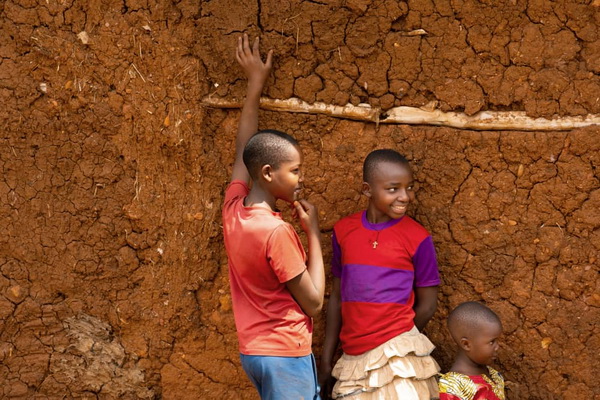World Malaria Day is observed on 25 April each year to raise awareness of the global burden of the disease. However, this year, as the world’s attention focuses on COVID-19, it would be easy to overlook this disease which impacts more than half of the world population and kills more than 400,000 people every year.
As a global citizen and a leader of an organization working to improve nutrition and global health, including the prevention of vector-borne diseases, I have monitored carefully, over the last weeks and months, the development of COVID-19. With horror and dismay, I have seen this pandemic test the resilience of even the most robust health systems.
On this World Malaria Day, I believe we have all the more reason not to forget the importance of preventing diseases in regions of the world where populations are most vulnerable and health infrastructures are oftentimes fragile or already challenged.
Malaria is still a fundamental threat affecting half the world population. According to the last WHO World Malaria Report, over 1,100 people die every day from the disease, the majority of whom are children under the age of five. In 2018, there were an estimated 228 million cases of malaria with 93 percent of those occurring in Africa. It remains a disease which hinders economic development – particularly in poor rural communities.
Since 2000, we have seen a dramatic reduction in the global malaria burden. Thanks to increased financial and political commitments which have enabled the scale up of effective interventions and better data, global death rates have fallen by 60 percent, saving 7 million lives over this same period.
However, success is fragile and in recent years the rate of progress has slowed. A number of challenges including insecticide resistance, changing mosquito behavior, plateauing budgets and possibly climate change threaten our fight against malaria. Now, as the world struggles to respond to COVID-19, there is a significant risk that prevention and treatment programs for malaria - and indeed other infectious diseases such as TB, measles and HIV - will be further disrupted, resulting in a resurge of these diseases.
For example, during the Ebola virus disease outbreak in West Africa of 2014 and 2015, a study from the Centers for Disease Control and Prevention (CDC) estimated that there was a 50 percent reduction in access to healthcare services. This exacerbated already high malaria mortality rates and led to an estimated 7,000 additional malaria-associated deaths among children younger than 5 years old in Guinea, Liberia, and Sierra Leone. Malaria prevention, despite the current context, must therefore remain a priority.
For more than 60 years, Bayer has invested in malaria prevention through development and supply of cost-effective vector control tools and the sharing of our expertise across the malaria community. Today our team is involved in supporting malaria control programs through the supply of residual sprays for indoor treatment of houses and active ingredients to manufacturers of insecticide-treated nets. These interventions remain the most cost-effective means to prevent the disease and since 2010, Bayer has supplied volumes of vector control products to malaria endemic countries, adequate to protect more than 250 million people thus reducing the strain on local health systems.
While in the midst of this Covid-19 crisis we therefore continue to support our partners implementing malaria vector control by ensuring our production sites and supply chain teams remain operational so that life-saving malaria prevention tools are available for those in need. In the long-term, Bayer also continues to invest into research and development for new transformative tools for the fight against the disease. For Bayer, malaria has been, is and will continue to be, high on our agenda.
There is much discussion and debate as to how the world will change post-COVID-19. Today, more than ever before, we are starting to fully appreciate the immensity and global nature of infectious diseases. They don’t respect borders and therefore require governments, scientific research institutions, other innovators and the private sector to work together in order to overcome them. If one positive thing should come out of this crisis, I hope it will be a consensus and commitment from all stakeholders to continue to invest into disease prevention and robust health systems all over the world and to maintain support to important bodies such as the World Health Organization which provide such valuable guidance under such crises.
I am a firm believer that great things can be accomplished when leaders unite in the name of a common goal. In this interconnected world, we have a great opportunity to learn from recent experiences, work more closely together to improve our response to new diseases such as COVID-19 and make further progress against long-standing diseases such as malaria. Only by doing so can we reduce suffering and improve the health and well-being of millions on our planet.
The Author, Dr. Jacqueline Applegate is President of Global Vegetable Seeds & Environmental Science at Bayer

